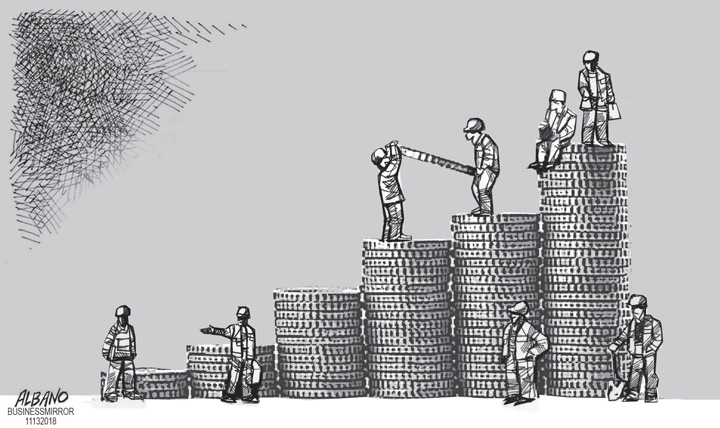
[ad_1]
The labor department said the recently approved P25 increase in the daily minimum wage of workers in the National Capital Region (NCR) will take effect on November 27. But a number of labor groups found the wage hike too insignificant to provide immediate relief to workers and their families, especially amid soaring prices and the continued erosion in the real value of workers’ wages.
On the other hand, the Employers Confederation of the Philippines (Ecop) said increasing the minimum wage—whatever the amount may be—will distort the country’s profile to investors.
“Periodic increase in minimum wage will affect the image of the country as an investment destination. Unreasonably and unpredictably high labor cost is a disincentive to investment, both foreign and local,” Ecop said.
Ecop warned the NCR Regional Tripartite Wages and Productivity Board against the negative repercussions of an increase in minimum wage, summarizing the points it raised during the public hearings in Congress about the issue.
Ecop said the increase will be particularly injurious to micro, small and medium enterprises. It argued that, in order to comply, SMEs may retrench or lay-off workers or pass on the burden to consumers through increase in prices of goods and commodities, thus negating whatever upward adjustment is made on minimum wage.
Ecop also said that increases in minimum wage will only benefit a small number of the labor force, thus exacerbating the conditions of and neglecting the unemployed sector.
“There are approximately 2 million minimum-wage earners in the Philippines. This is only about 5 percent of the approximately 40 million labor force. In the NCR, the estimated number of minimum-wage earners stands at 952,485,” it said. “Millions of unemployed and underemployed not benefiting from any minimum-wage increase are all the more deprived of the opportunity to be absorbed in the labor force within the ambit of labor laws and enjoy the benefits provided therein.”
Ecop raised very good points, but then again, employers, businesses and even economists always say increasing the minimum wage would lead to unemployment, a scare scenario that rarely actually materializes. Indeed, unemployment numbers have more or less remained the same after wage hikes were granted.
Our experience has shown that wage hikes have negligible effects on employment because our economy is strong enough to accommodate them. Many firms can actually employ more workers, as there is more demand to produce goods.
This may not be the case for all companies, but a number of industries continue to boom and grow profits and can definitely afford to give wage increases.
An upward revision of wage rates is possible along industry lines. There are slump-proof industries that can readily pay for higher wages—like electricity, water distribution, telecommunications, banking, even media and advertising. Telecommunications, for instance, is being buoyed up by the surge in mobile telephony and broadband services, so it could not only afford minimum-wage increases but also absorb its contractual workers and make them regular employees.
Now, if there are two or three firms in booming industries that are losing money because of exceptional circumstances, they can always justify their cases and ask for a possible exemption.
But employers are also right in saying there are other options in mitigating the effect on workers of surging prices of basic goods other than raising wages, and the government should not pass on the burden of protecting the welfare of workers to employers alone.
Ecop had mentioned the lifting of the excise tax on fuel under the Tax Reform for Acceleration and Inclusion law and an additional cost-of-living allowance (Cola) rather than an outright wage hike as options.
Unlike a basic wage increase, Cola is not used in the computation for 13th-month pay, night-shift differential, overtime pay and retirement benefits, making it less costly for employers.
The People Management Association of the Philippines had suggested a productivity-based adjustment, rather than an outright region-wide permanent adjustment, which could no longer be undone once it is already granted.
This is also a good suggestion, because businesses that see their income and profitability grow can deliver the corresponding increase in the wages of workers, which, in turn, could further boost workers’ productivity.
Source link